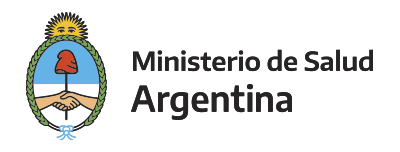Please use this identifier to cite or link to this item:
http://sgc.anlis.gob.ar/handle/123456789/2130| DC Field | Value | Language |
|---|---|---|
| dc.contributor.author | Vacchino, Marta | es |
| dc.date.accessioned | 2021-01-13T00:50:12Z | - |
| dc.date.available | 2021-01-13T00:50:12Z | - |
| dc.date.issued | 1999-07 | - |
| dc.identifier.issn | 0013-9351 | - |
| dc.identifier.uri | http://sgc.anlis.gob.ar/handle/123456789/2130 | - |
| dc.description | Fil: Vacchino, Marta N. ANLIS Dr.C.G.Malbrán. Instituto Nacional de Epidemiología; Argentina. | es |
| dc.description.abstract | The aim of this study was to map standardized mortality ratios (SMRs) of specific cancers in Argentina and to examine some ecological relationships using Poisson regression, Poisson regression with frailties, and empirical Bayes estimates. Mortality data for lung cancer, nonmelanoma skin cancer, melanoma, and stomach cancer were obtained from national registers for the period 1989-1993. Overcrowding and unsatisfied basic needs (UBN) were used as indicators of socioeconomic status and people working permanently on farms as an indicator of rural activity. Empirical Bayes estimates provided a good solution for mapping rare causes of cancer when random fluctuations of observed deaths are important, as in the case of nonmelanoma skin cancer (NMSC) and melanoma. In the case of lung and stomach cancers the main improvement was the attenuation of confidence intervals. Lung cancer rates (males and females) were higher in jurisdictions with better socioeconomic status. When the variable UBN was categorized in tertiles (<20, 20-27, and 28% and higher) the rate ratios of lung cancer in men fell to 0.82 IC 95% (0. 78-0.85) in those with UNB index among 20-27% with respect to the reference level and to 0.56 IC 95% (0.54-0.59) in those with more than 28%. In contrast, stomach cancer rates were associated with worse economic conditions. NMSC and melanoma showed different patterns. The former was associated with working on farms, while the latter was not. Neither NMSC nor melanoma was increased in areas affected by Antarctica's ozone hole. Research appears to be warranted to further investigate associations of lung cancer with smoking and behavior in women living in southern Argentinean provinces. Public education must continue to promote personal responsibility in the intervention process to reduce the morbidity and mortality associated with cancers, such as lung and skin cancer, which are partially avoidable through behavioral changes. | es |
| dc.format | - | |
| dc.language.iso | en | es |
| dc.relation.ispartof | Environmental research | es |
| dc.rights | Closed Access | - |
| dc.source | Environmental research 1999;81(1):1-17 | - |
| dc.subject | Neoplasias Pulmonares | es |
| dc.subject | Neoplasias Cutáneas | es |
| dc.subject | Melanoma | es |
| dc.subject | Estudios Ecológicos | es |
| dc.title | Poisson regression in mapping cancer mortality | es |
| dc.type | Artículo | es |
| dc.identifier.doi | 10.1006/enrs.1998.3953 | - |
| anlis.essnrd | 1 | - |
| item.openairetype | Artículo | - |
| item.cerifentitytype | Publications | - |
| item.grantfulltext | none | - |
| item.fulltext | No Fulltext | - |
| item.openairecristype | http://purl.org/coar/resource_type/c_18cf | - |
| item.languageiso639-1 | en | - |
| Appears in Collections: | Publicaciones INE | |
Items in DSpace are protected by copyright, with all rights reserved, unless otherwise indicated.

